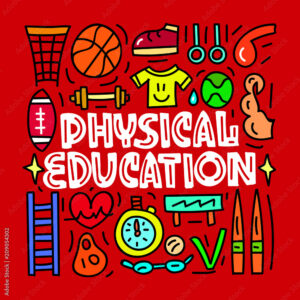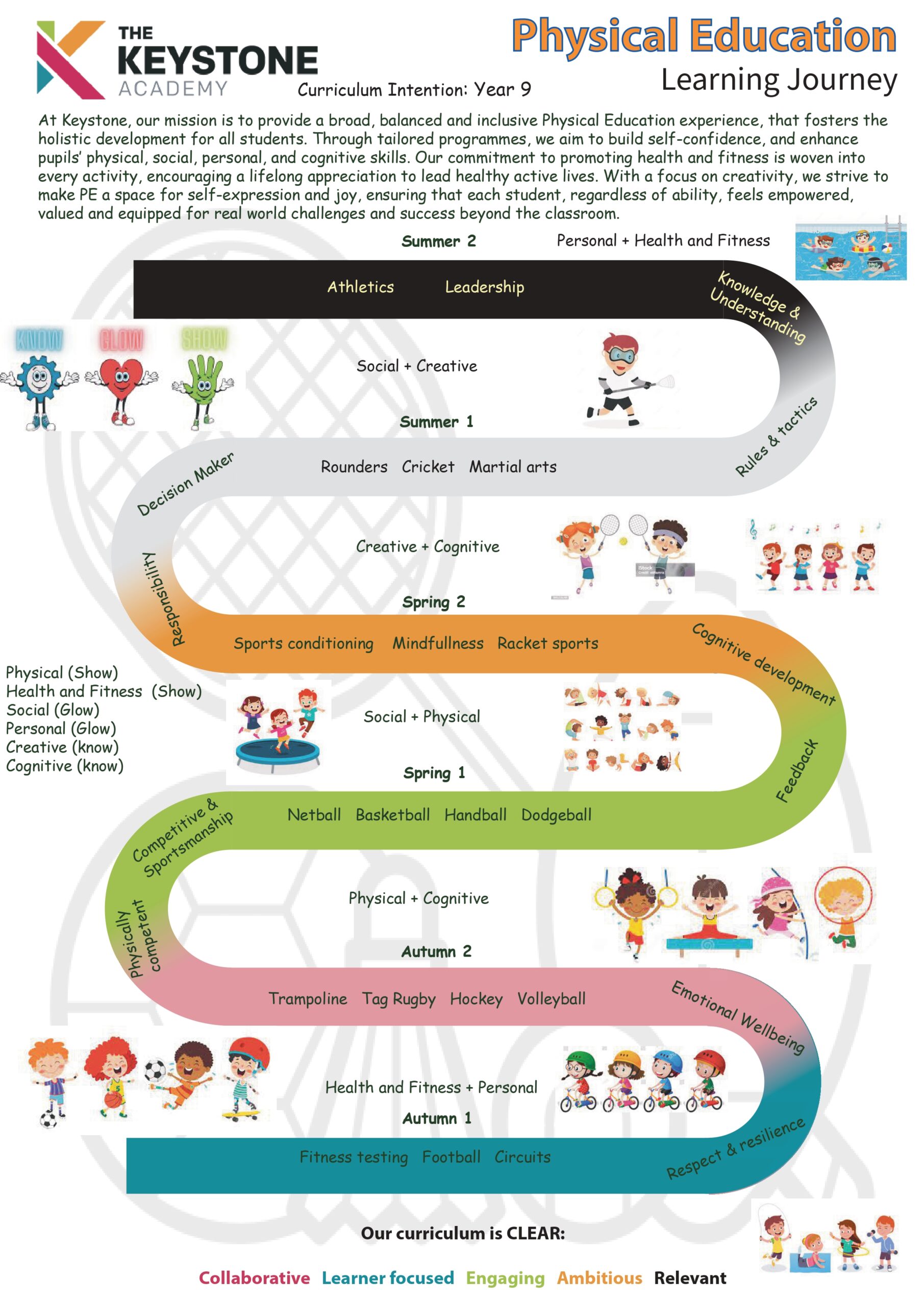Physical Education
What skills can I gain?
- Motor Skills and Coordination: PE provides a safe and supportive environment for students to develop gross motor skills (running, jumping, throwing) and fine motor skills (balance, hand-eye coordination).
- Self-Confidence and Social Skills: Through adapted games and activities, PE fosters a sense of achievement and belonging. Students learn to cooperate with peers, follow instructions, and communicate effectively, all of which build their self-confidence and social skills.
- Lifelong Health Habits: PE instills an appreciation for physical activity and its benefits. Students explore various activities, develop healthy movement patterns, and learn about the importance of exercise for overall well-being.
So what comes next?
These pathways can lead to so many different careers such as:
- Teaching:Physical education teachers work in schools and colleges to teach children and young adults about physical activity and sport.
- Sports Science:Sports scientists use their knowledge of physiology, biomechanics, and psychology to help athletes improve their performance.
- Sports Therapy:Sports therapists work with athletes to prevent and treat injuries.
- Sports Management:Sports managers work in a variety of roles, including event management, marketing, and finance.
What is interesting about PE?
Healthier Lives: PE combats rising issues like obesity and promotes physical fitness, leading to a stronger, healthier population. Life Skills: PE fosters teamwork, communication, and problem-solving, all crucial for success in school, work, and life. Positive Habits: PE instills a love for movement, encouraging lifelong participation in physical activity for overall well-being. Social Inclusion: PE provides a space for everyone to participate, regardless of ability, building a more inclusive society.
What Qualifications can I get?
Mrs Jenna Johnson

Mr Wil Hitchman





